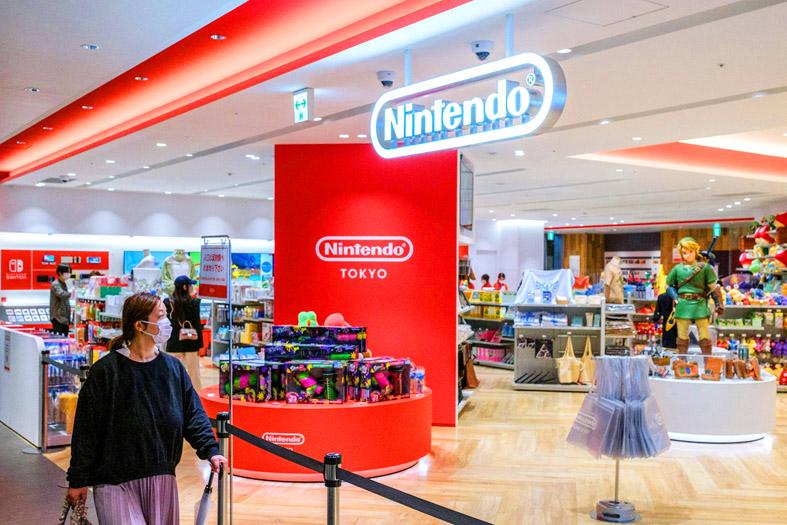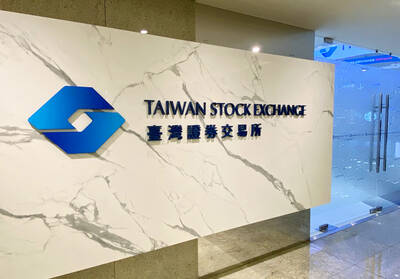Local image sensor supplier PixArt Imaging Inc (原相) yesterday became the latest chip supplier to warn of a dip in revenue this quarter — traditionally a high season — as weak consumer electronics demand spreads to optical mice, heart rate monitors and CCTV cameras.
On top of that, demand for image sensors used in Nintendo Co’s Switch game consoles has continued to slide, as the Japanese maker is struggling with supply of other key components, which could further constrain its production, PixArt said.
PixArt said it would not rule out that revenue would slide further this month and next month from NT$448.4 million (US$14.95 million) last month.

Photo: AFP
Third-quarter revenue might fall 15 percent from NT$1.59 billion last quarter, it said.
Optical mouse sensors were the biggest revenue contributor last quarter, accounting for 61 percent of the company’s total sales, followed by sensors for game consoles at 10 percent, PixArt said.
“We saw a significant decline in consumer electronics demand in June and are seeing customers turn conservative about pulling in goods while the supply chains are undergoing inventory digestion,” PixArt chief financial officer Lo Mei-wei (羅美煒) told an online investors’ conference.
“We now expect revenue in the third quarter to be lower than that of the second quarter,” Lo added.
Soaring inflation, global central banks’ monetary tightening, geopolitical tensions and decelerating economic growth are depressing demand for consumer electronics, PixArt said.
It might take at least two quarters to see supply chain inventory return to a healthy level, Lo said.
The company hopes the year-end shopping season would help speed up inventory digestion and pave the way for a recovery in the first quarter of next year, he said.
PixArt’s days of inventory spiked to 130 days last quarter, compared with its normal 70 to 90 days. The company had built up its chip inventory in the past two years in response to a supply crunch, only to see demand weaken.
Gross margin this quarter might be lower than last quarter’s 55.4 percent, given an unfavorable product mix, Lo said.
Operating margin last quarter plunged to 12.1 percent from 26 percent a year earlier and compared with 4.8 percent in the first quarter.
One bright spot is average selling prices that are likely to be stable this quarter, given high manufacturing costs, PixArt said, citing higher costs for foundry, as well as chip testing and packaging services.
Net profit plunged 48 percent to NT$262.49 million last quarter from NT$511.87 million a year earlier. On a quarterly basis, it more than doubled from NT$127.11 million, PixArt said.
Net profit in the first half tumbled 58 percent to NT$389.6 million from NT$938.33 million a year earlier. Earnings per share slumped to NT$2.75 from NT$6.77.

Taiwan Semiconductor Manufacturing Co (TSMC, 台積電) secured a record 70.2 percent share of the global foundry business in the second quarter, up from 67.6 percent the previous quarter, and continued widening its lead over second-placed Samsung Electronics Co, TrendForce Corp (集邦科技) said on Monday. TSMC posted US$30.24 billion in sales in the April-to-June period, up 18.5 percent from the previous quarter, driven by major smartphone customers entering their ramp-up cycle and robust demand for artificial intelligence chips, laptops and PCs, which boosted wafer shipments and average selling prices, TrendForce said in a report. Samsung’s sales also grew in the second quarter, up

LIMITED IMPACT: Investor confidence was likely sustained by its relatively small exposure to the Chinese market, as only less advanced chips are made in Nanjing Taiwan Semiconductor Manufacturing Co (TSMC, 台積電) saw its stock price close steady yesterday in a sign that the loss of the validated end user (VEU) status for its Nanjing, China, fab should have a mild impact on the world’s biggest contract chipmaker financially and technologically. Media reports about the waiver loss sent TSMC down 1.29 percent during the early trading session yesterday, but the stock soon regained strength and ended at NT$1,160, unchanged from Tuesday. Investors’ confidence in TSMC was likely built on its relatively small exposure to the Chinese market, as Chinese customers contributed about 9 percent to TSMC’s revenue last

Taiwan and Japan will kick off a series of cross border listings of exchange-traded funds (ETFs) this month, a milestone for the internationalization of the local ETF market, the Taiwan Stock Exchange (TWSE) said Wednesday. In a statement, the TWSE said the cross border ETF listings between Taiwan and Japan are expected to boost the local capital market’s visibility internationally and serve as a key for Taiwan becoming an asset management hub in the region. An ETF, a pooled investment security that is traded like an individual stock, can be tracked from the price of a single stock to a large and

Despite global geopolitical uncertainties and macroeconomic volatility, DBS Bank Taiwan (星展台灣) yesterday reported that its first-half revenue rose 10 percent year-on-year to a record NT$16.5 billion (US$537.8 million), while net profit surged 65 percent to an unprecedented NT$4.4 billion. The nation’s largest foreign bank made the announcement on the second anniversary of its integration with Citibank Taiwan Ltd’s (花旗台灣) consumer banking business. “Taiwan is a key market for DBS. Over the years, we have consistently demonstrated our commitment to deepening our presence in Taiwan, not only via continued investment to support franchise growth, but also through a series of bolt-on acquisitions,” DBS